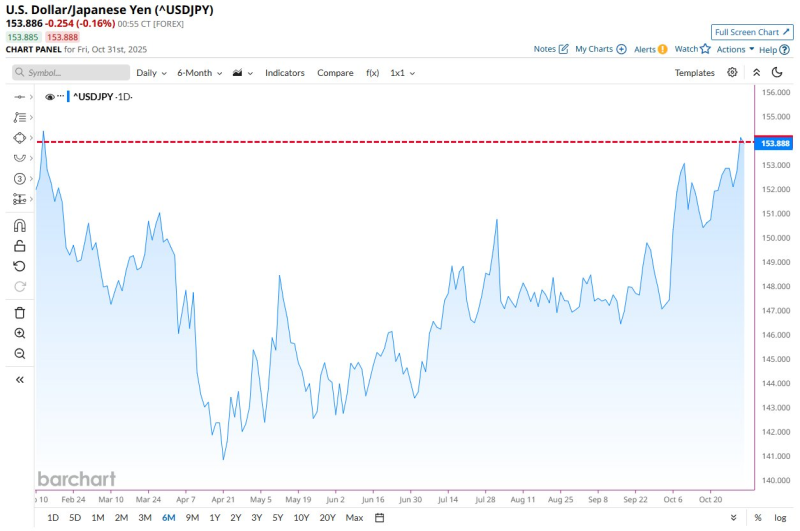● The Japanese yen has slid to an eight-month low against the U.S. dollar, trading near ¥153.9. The decline reflects ongoing pressure as investors anticipate continued monetary policy differences between the Federal Reserve and the Bank of Japan (BoJ).
● Tokyo policymakers now face a tough call on whether to step in and support the yen. While Japan's Ministry of Finance hasn't intervened yet, it's watching closely. A weaker yen helps Japanese exporters earn more from overseas sales, but it also makes imports and energy more expensive, fueling inflation at home. Market watchers say if the yen breaks past ¥154–155, authorities might take action.

● The currency's weakness is already hitting hard. Importers are paying more for fuel and materials, while everyday prices are climbing for consumers. The BoJ's ultra-low interest rates keep borrowing cheap but amplify inflation and eat into household spending power. Analysts estimate Japan's weak currency could add billions to its inflation burden through 2026. Some economists suggest the BoJ might need to gradually tighten policy or adjust its yield-curve controls to stabilize the yen without killing growth.
● The yen's fall is part of broader volatility in global currency markets, with Asian currencies weakening as demand for the strong U.S. dollar persists. The dollar stays supported by solid U.S. economic data and expectations that Fed rate cuts remain distant, while Japan's interest rate gap with other major economies stays wide.
● As Barchart put it: "The Japanese Yen hits its weakest level against the U.S. Dollar in more than 8 months." The slide captures Japan's tricky balancing act — enjoying export competitiveness while managing the rising costs of a falling currency.
 Marina Lyubimova
Marina Lyubimova

 Marina Lyubimova
Marina Lyubimova


